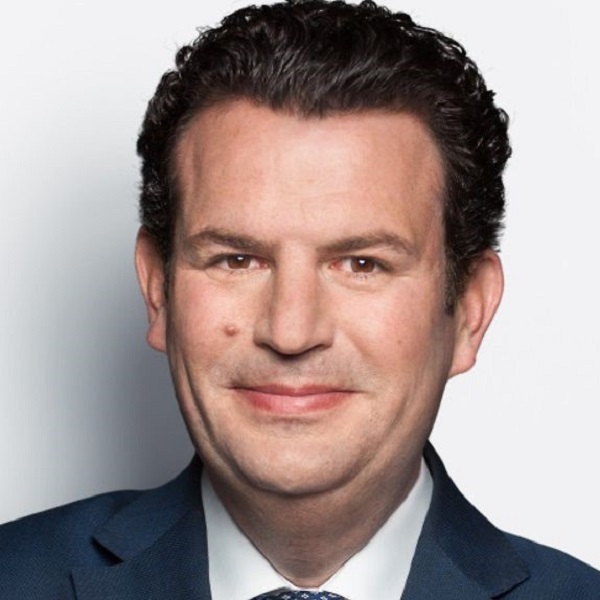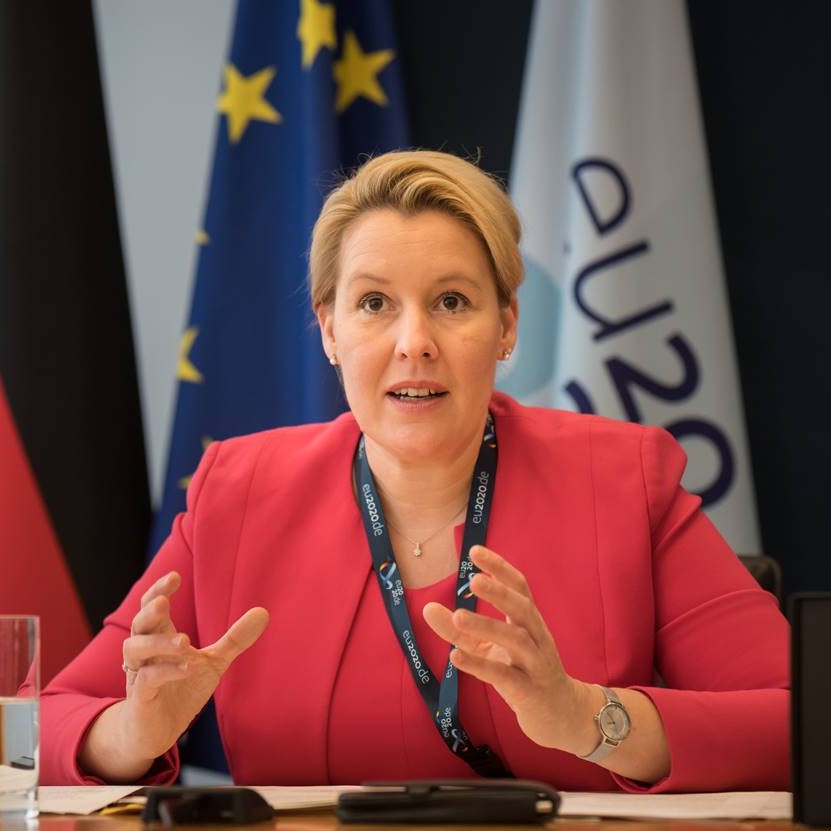Main results
New work – human-centric work: Ensuring fair working conditions and social protection in the Platform Economy
Ministers exchanged views on ways to ensure better working conditions and social protection of platform workers. The debate focused on measures, including legislative proposals, to address some specific problems related to platform work, such as non-transparent and unpredictable working conditions, higher health and safety risks, and inadequate access to social protection.

The share of platform work models in the EU economy and the number of platform workers will only grow. So will the need to find solutions to ensure that the so-called ‘new ways of working’ are human-centric. We stand ready to improve the working conditions and reinforce the protection of platform workers. Our debate confirmed this commitment and will serve as a valuable contribution to efforts to upgrade and modernise the relevant EU legislation.
Hubertus Heil, Federal Minister of Labour and Social Affairs
Ministers broadly agreed on the need to tackle the issues of precarious working conditions and insufficient social protection at EU level, taking into account member states’ national labour markets models. Ministers identified a number of challenges which needed to be addressed, such as the cross-border nature of platform companies and the related uncertainty regarding obligations and rights, and the transparency-lacking management of the workforce based on algorithms, which makes it difficult for workers to claim their rights.
The majority of the delegations argued that there was no need to create a special category of workers for the purposes of improving social protection and working conditions. They called for a proper and strengthened application of existing national and EU-wide rules, referring in particular to the directive on transparent and predictable working conditions and the Council recommendation on access to social protection for workers and the self-employed. Ministers also highlighted the need to extend the coverage of national labour legislations to platform workers and for the inclusion of this emerging category into collective agreements concluded at national level.
Overall, ministers agreed that it was important not to compromise on social protection, while, at the same time, ensuring that the labour market is not over-regulated. In relation to this, many delegations called for striking the right balance between adequate social protection and creating opportunities for innovation, job creation and the emergence of competitive start-ups in the EU.
A union of gender equality? How to implement the Commission’s Gender Equality Strategy 2020-2025 to achieve equal labour market participation of women and men
For the first time, ministers responsible for equality discussed how to implement the Commission’s strategy to achieve equal labour market participation for women and men. Current figures show significant employment, social security and pay gaps across the EU. The strategy recognises that equal labour market participation is an important step to achieve gender equality.

Equal distribution of unpaid care work and paid employment between women and men is key to gender equality – and especially important as we are grappling with the impact of the coronavirus pandemic. This week, the Council unanimously adopted the Council Conclusions “Tackling the gender pay gap: valuation and distribution of paid work and unpaid care work”. This is an important sign: Europe moves jointly towards a gender equal future. I am convinced that we can only achieve gender equality if we all work together: women and men.
Franziska Giffey, Federal Minister for Family Affairs, Senior Citizens, Women and Youth
Ministers expressed their broad support for the Gender Equality Strategy 2020-2025 presented by the Commission in March this year. Delegations highlighted the importance of the strategy’s objectives to achieve gender equality and to provide equal rights of women and men in all their diversity, as well as to ensure that they have equal opportunities and are free to make independent choices in relation to their personal and professional life.
Ministers identified a number of challenges in reducing gender inequalities, such the gender pay gap, gender stereotypes and the far bigger share of women in short-term, part-time and low-paid jobs and in caring responsibilities.
Ministers also suggested measures to overcome these challenges: ensuring equal pay through pay transparency, improving the availability and affordability of quality childcare and social care, conducting awareness-raising activities, among others.
Many delegations called for the proper and timely transposition into national legislation of the directive on work-life balance in all member states and called for further efforts to reach agreement on the currently discussed directive on equal treatment (Art. 19).
The recent unanimous approval of conclusions, in which the Council calls on the Commission and member states to step up the efforts to reduce the gender pay gap and gender gaps in care and to fight gender stereotypes, was welcomed as a decisive step in the process of achieving gender equality across the EU.
Other business
- The presidency and the Commission provided information on the proposal for a directive on adequate minimum wages in the European Union.
- The presidency provided an updated information on the proposal for a directive on the protection of workers from the risks related to exposure to carcinogens or mutagens at work (4th batch).
- The presidency briefed ministers on the state of play of the negotiations on the European Globalisation Fund Regulation 2021-2027.
- The Presidency informed about the state of play of the negotiations with the European Parliament on the revision of the regulations on coordination of social security systems.
- Ministers were briefed by the Presidency on the state of play in relation to the legislative proposal for a Council Decision authorizing the ratification of the ILO Convention No. 190.
- The Presidency provided information on the new Council Recommendation on Roma Equality, Inclusion and Participation.
- The Commission informed about the evaluation of the current European Disability Strategy and the preparatory work on a new strategy.
- The presidency briefed ministers about the latest Tripartite Social Summit (14 October 2020).
- The Commission provided information on the Action plan to implement the European Pillar of Social Rights.
- The Portuguese delegation presented the work programme of the incoming presidency in the area of Employment and Social Policy.
- The presidency informed about the progress reached on the proposal for a directive on equal treatment (Article 19).
- The Commission provided information on its first-ever LGBTIQ Equality Strategy. The presidency briefed on the outcomes of the Conference on Intersectionality and LGBTI Policies in Europe (18/19 November 2020).
- The presidency briefed ministers about the informal video conference of EU Gender Equality Ministers held on 20 November 2020.
- The presidency also informed about the Joint Declaration of EU Member States to support families and combat child poverty in light of COVID-19.
- The Portuguese delegation presented the work programme of the incoming presidency in the area of Gender Equality and Non-Discrimination.